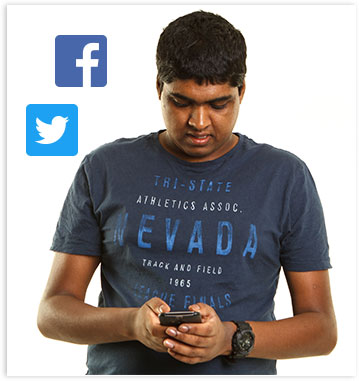 Judith Darragh, a PhD Candidate at Flinders University in Adelaide, has been working on a study looking at how people with intellectual disability use and access social media, and how they express themselves sexually. Judith recently published the initial results of the study in a journal article Let’s talk about sex: How people with intellectual disability in Australia engage with online social media and intimate relationships.
Judith Darragh, a PhD Candidate at Flinders University in Adelaide, has been working on a study looking at how people with intellectual disability use and access social media, and how they express themselves sexually. Judith recently published the initial results of the study in a journal article Let’s talk about sex: How people with intellectual disability in Australia engage with online social media and intimate relationships.
The study involved interviews with 30 adults with intellectual disability, aged between 26 and 66 years of age. Three key themes came out of the data: creating new friendships, maintaining existing friendships and exploring and expressing sexuality. The research also found that the participants used cyber safe practices without any formal education about them. They conducted themselves in a respectful way online and few acted in a way that would put them at risk of being exploited.
We were lucky enough to speak to Judith recently about the study and her reasons for choosing this subject for her PhD.
What made you choose this topic?
“We are all human beings but have different abilities. Since, historically, individuals living with intellectual disability have often been excluded and marginalised in mainstream society and denied the right to express sexuality and experience intimacy, I wanted to explore what was currently happening.
The internet and social media have become entrenched in mainstream society and having access to internet based social media has the potential to expand and enhance the opportunities for individuals living with intellectual disability. I was interested in finding out if individuals living with intellectual disability were making contact with other people and perhaps starting relationships with the view of experiencing sexual intimacy through social media. If they had not wanted to, I was interested to know why they had not and if there were any barriers that may have prevented them from doing so.”
What have your initial results been?
“Facebook was the most popular internet-based social media application accessed by the participants in this study.
Most of the 30 participants reported that their access and engagement with internet based social media was, in the main, around maintaining existing friendships, attempts at making new friends, engaging with groups and browsing online for the things that interested them.
Almost all of the participants expressed a desire to make new non-sexual friendships rather than meet people on social media to develop social relationships that could result in engaging in sexual or sexually related behaviours.”
Were your results what you expected?
“I’m not really sure what I was expecting to discover because I set out with an open mind. However, previous research had reported individuals living with intellectual disability had worked out a sort of ‘internet smartness’ and knew how to handle risk so it wasn’t unexpected when most of the 30 participants in my study did also.
Historically, lack of finances has been a reason cited for individuals living with a disability not having access to many of the things that mainstream society has to offer and takes for granted having access to. So, I was amazed that all but one participant owned a mobile phone they could use to access the internet and social media and financial reasons were never reported as a reason they had not accessed internet-based social media.”
What are the next steps for you and for the project?
“I definitely want to continue research with individuals living with intellectual disability especially in the area of sexual relationships, as I want to find out if they are allowed their basic human right to form relationships and engage in sexual activities, should they want to do so.
I would like to write a paper about ‘gate keepers’ and the role they play in what individuals living with intellectual disability can and can’t do and provide information about why they need not fear individuals living with intellectual disability having access to social media.”
You can read the full text of the journal article Let’s talk about sex: How people with intellectual disability in Australia engage with online social media and intimate relationships, (Judith Darragh, Louise Reynolds, Caroline Ellison, & Michelle Bellon) on the CyberPhyscology website.


